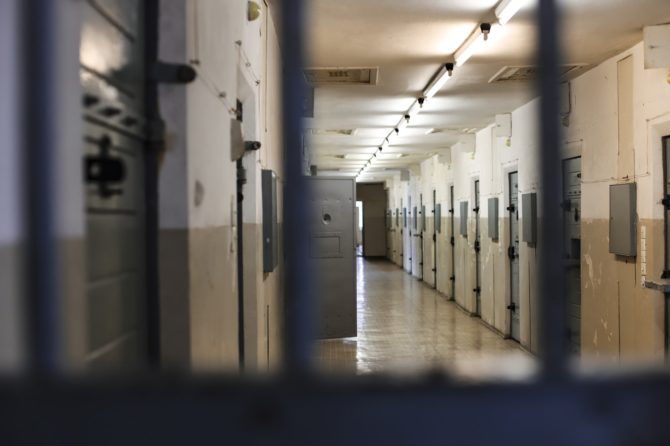
More and More, Police Have Decreased Arresting Citizens for Drug Crimes
Drug crime arrests are declining. The complex issue of incarcerating those charged with drug possession is slowly evolving into an effort to allow low-level drug offenders to seek treatment and find hope in recovery.
State-appointed treatment options are offering help, not handcuffs, as policymakers around the United States are slowly coming around to agreeing with activists and health care professionals that addiction and drug abuse are public health issues rather than law enforcement ones.
It’s a bold move that promotes access to treatment instead of incarcerating users. This step towards helping people, not criminalizing them, is being considered as an alternative to drug policies that many argue have led to overcrowded prisons, devastated communities, and even more drug abuse.
The U.S. has the highest incarceration rate in the world with over $47 million spent annually on combating the War on Drugs. Over 1.6 million people were arrested for drug law violations in one year alone, and while nearly half of all federal inmates in the country are serving for drug-related convictions, only 11% receive substance abuse treatment in jail or prison.
Approximately half of all prison inmates have a substance use disorder, while at the time of arrest, 63% to 83% of arrestees in major American cities had drugs in their system. Many with substance use issues who are released from prison end up relapsing once they’re back in the community.
What is being done to combat the problem?
Treatment is one sensible and actionable solution to breaking this cycle. Court-ordered rehabilitation is one alternative to less severe sentences that is available to individuals charged with drug-related crimes who agree to complete addiction treatment programs. It’s ordered by a judge as part of a court ruling and is usually in lieu of a prison term that might not match the nature of the crime.
For those who are addicted to alcohol or other drugs that impair judgment and lead to them committing a relatively minor crime, this is a common-sense avenue to take. If the crime committed is not violent in nature, or if the motive was to steal or commit another illegal act to pursue the acquisition of illicit drugs, the judge has the option to order a court-mandated drug program rather than prosecute.
A court may order rehab rather than jail time if:
- The crime was nonviolent
- The crime committed was a direct or indirect result of drug dependence
- The court believes the person would benefit from drug or alcohol rehab
- The individual qualifies for a probation sentence
Where is this happening?
State-appointed addiction treatment is seeing a rise across the country.
Prosecutors in Washington state’s King and Snohomish counties, which includes Seattle, recently became the first in the nation to stop charging people for possessing small amounts of drugs, including heroin and methamphetamines. Those in cities such as Philadelphia and Boston have recently begun work on implementing similar policies.
Taxpayers in King County were reportedly spending over $3 million a year to prosecute 800 to 1,000 drug possession cases, but rather than solve the crisis it led to a revolving door of the same individuals being arrested, prosecuted, and put back on the streets. Failing to break the cycle, the program was ended last September.
The experimental plan in Washington aims to expand treatment options while not prosecuting anyone found with less than a gram of any drug. Washington, along with a few dozen other states, has legalized or decriminalized marijuana, while five states have reclassified drug possession offenses from a felony to a misdemeanor.
Meanwhile in Ohio, the House passed a bill that favors addiction treatment over prison that would expand access to programs for non-violent drug offenders rather than conviction.
Advocates look to Portugal, which in 2001 became the first country to decriminalize drug possession, as a model. Since then, the number of individuals voluntarily entering treatment has increased significantly, while overdose deaths and HIV infections amongst those who use drugs have decreased. In addition, rates of problematic drug use have decreased.
What is the next step?
Detractors of these new drug policies believe that decriminalization will lead to more individuals abusing substances. But programs like Seattle’s LEAD (Law Enforcement Assisted Diversion) take an experimental approach to fighting the problem. They don’t require their clients to abstain from drugs and allow them to progress at their own pace. That could mean providing clean needles or syringe exchanges.
Early indicators show that LEAD’s clients had a 40% lower chance of being charged with a felony compared to those who didn’t participate in the program, along with a higher chance of being housed and employed. This model is being spread to 37 counties and cities.
This approach, along with court-ordered rehab services where users receive help instead of incarceration, is a step in a more compassionate direction for all of those seeking treatment for their substance abuse.
If you are currently battling addiction and wish to overcome it, Windward Way is here to help. We empower men and women to become their best selves in a welcoming and supportive environment that revolves around community, connection, and purpose.
Give us a call at 855-491-7694 to take the next leap in your life.
Leave a reply